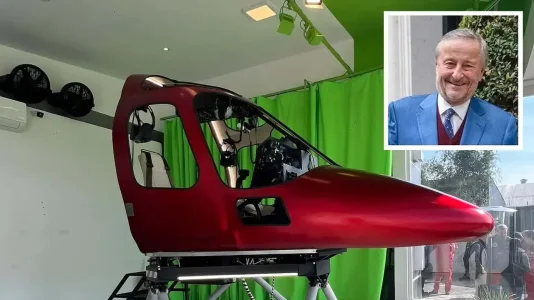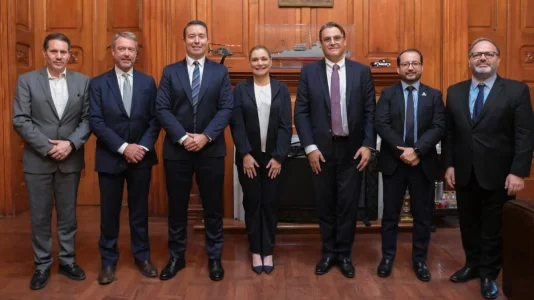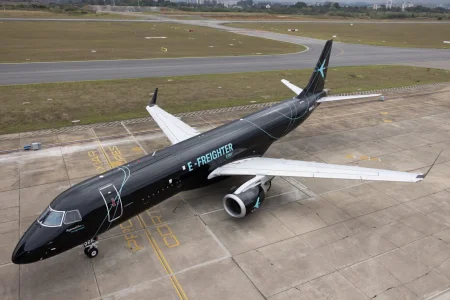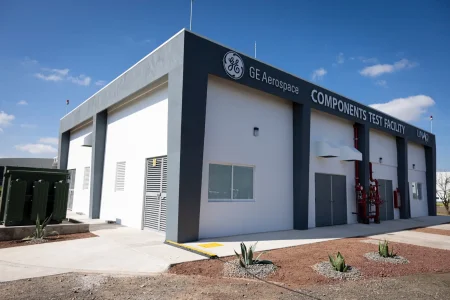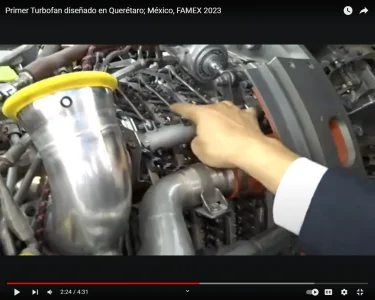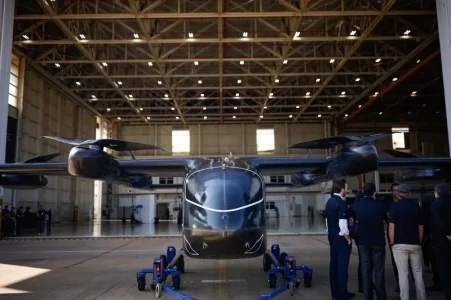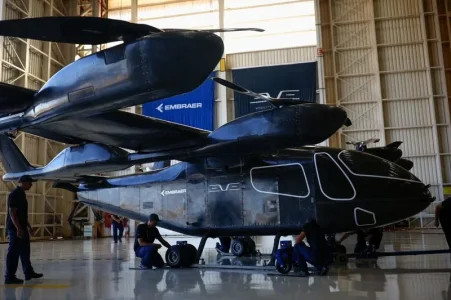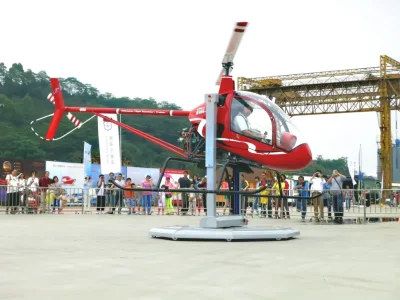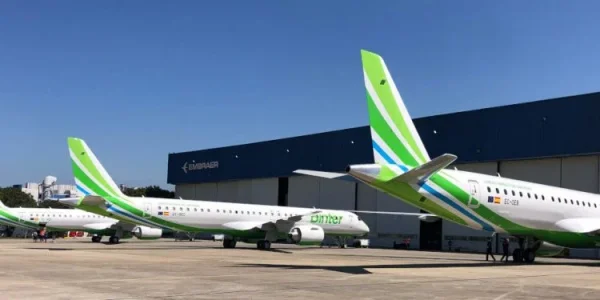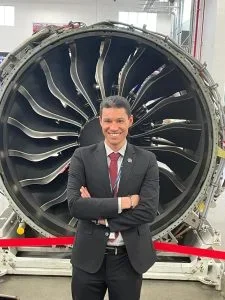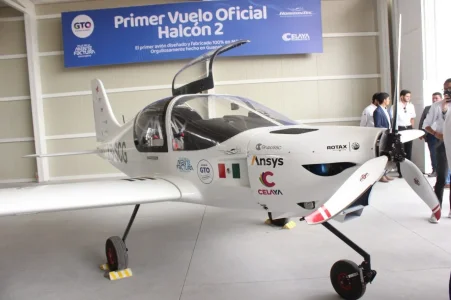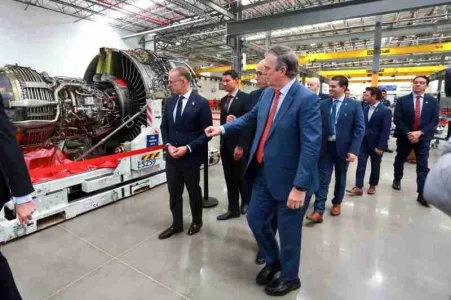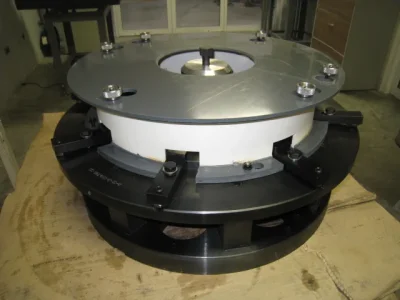ITP Aero Mexico expanded its production center in Querétaro, which represented an investment of more than 580 million pesos and the incorporation of 250 new jobs.
The director of ITP Aero Mexico, Txomin Crespo Domínguez, recalled that the firm was the first aeronautical company to set up in Querétaro, a pioneer in an industry that today is one of the economic pillars of the state and that since 1998, the year in which ITP began operations, the history of its growth has been parallel to the growth of the state.
"A growth that in the case of ITP Aero has been accentuated in recent years. These two magnificent facilities that we are inaugurating today, the one we are in, which is the foundry, and the central warehouse, are two good examples of this growth and this investment effort in new products and new capacities for the plant."
The Spanish company has expanded its operations and capacities, focusing on the launch of new product families and new capacities in general, which has allowed them to position themselves as a benchmark in the aeronautical industry. He added that in order to address this growth during the last year, the workforce has grown by 20% and activity by 30%, which adds up to more than a thousand employees in the plant.
Meanwhile, the CEO of ITP Aero, Carlos Alzola Elizondo, celebrated the construction of the new facility that will be dedicated to manufacturing new branches of high-tech products, such as castings, of the highest technical complexity, they are products, he said, that have so much technology and complexity that very few companies in the world can do it. In addition, he said, the central warehouse that is also being inaugurated is a testimony to the volume that the plant in Mexico and that ITP as a whole is having, supplying an aeronautical market that is in a moment of absolute growth.
"These facilities that we are inaugurating are also a reference in terms of innovation, as I said, for the type of product we make, it is a quality product, but also in terms of sustainability (…) we are a reference in terms of the care that all our actions have on the planet (…) I cannot finish without thanking the support of the state of Querétaro, represented here by its Governor and the Secretaries of Sustainable Development and Labor, from the first moment we have felt very welcomed here, very loved, very supported," he declared.
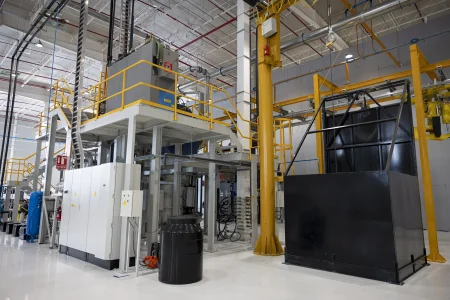
For her part, ITP Aero Mexico CEO, Eva Azoulay, stressed that the success of Querétaro is the success of ITP Aero, and therefore, she emphasized that the new facilities, unique in their category in the region, are an incentive to look to the future with optimism and determination. She specified that today it is the second largest plant in the world, equipment that has played an incredible role in its growth and in its continued success. She reaffirmed the Group's commitment to continue investing in technology and attracting young talent.
ITP Aero Mexico is a world leader in the design, development, manufacturing and maintenance of aeronautical propulsion systems and components for commercial and defense aviation.
ITP Aero México, es líder mundial en el diseño, desarrollo, fabricación y mantenimiento de sistemas de propulsión aeronáuticos y componentes para la aviación comercial y de defensa.

mexicoindustry.com
QUERETARO - ITP Aero, an aerospace company of Spanish origin, invested US$27.7 million to expand its facilities in Queretaro, through a new ship for the production of castings and a logistics center.
This project will create 250 jobs over the next three years, according to company information.
This facility is in addition to the company's plans to increase its workforce in Mexico by 20% in the last year, with an expected increase to more than 1,000 employees.
The company plans to invest in the coming years to expand and improve its technological capabilities; in addition, according to the company, over the last three years it has focused its efforts on launching new product lines.
During the inauguration of the new facilities, ITP Aero CEO Eva Azoulay highlighted the company's participation in the industry, now with the development of new technological capabilities such as the manufacture of castings.
“We were pioneers in making Queretaro a world-class aeronautical hub, our growth and investments here demonstrate our commitment to the Mexican aeronautical sector, developing new technological capabilities, such as the manufacture of castings and positioning ITP Aero and Queretaro at the forefront of aeronautical technology,” she said.
ITP Aero was installed in the state in 1998, establishing itself as the first aeronautical company in Querétaro; since that date, the firm has registered a sustained growth in its operations, providing from engine maintenance services to the development of design and manufacturing capabilities for aeronautical engine components
ITP Aero, an aerospace company of Spanish origin, invested US$27.7 million to expand its facilities in Queretaro

mexico-now.com
LEON, GTO - By the end of this year, Safran Mexico will inaugurate two new plants in the country, one in Chihuahua and the other in Queretaro, said Alejandro Cardona Seeman, president of Safran Mexico.
In an interview with A21, during the BJX Summit Aerospace 4.0 2024, held in this city, he explained that
Safran System's plant 6, which will be inaugurated by the end of this year in Chihuahua, will manufacture evacuation products, slides and rescue equipment.
The Querétaro plant will have the objective of expanding the MRO activity of single-aisle aircraft engines; the idea is that up to 350 engines can be repaired at this plant for customers worldwide, and a test cell is being built in a controlled environment to run tests on how the engine will behave, as well as verify the parameters and certify the engine to return it to the customer.
He also pointed out that the new aircraft engines section is being expanded, so that this plant will assemble completely new engines in the country. This will position Mexico as the world's third largest producer of turbojets for single-aisle aircraft, after the United States and France.
He added that he expects the engine assembly extension to be inaugurated next November and the MRO engine plant and the Chihuahua plant to be opened next year.
“Safran is betting a lot on Mexico, for the simple fact that it is a completely strategic country, towards one of the largest consumers of aerospace products which is the United States and also a visibility to the Brazilian market, for the Embraer issue," he said.
The president of Safran Mexico added that the Mexican talent, in these last 34 years of Safran's adventure in Mexico, has been specializing, each time it is very competitive and that allows it to continue considering the country to locate highly specialized processes.
He added that, obviously, manufacturing follows technological development to make those designs and concepts a reality.
Therefore, Mexico needs to be able to retain talent in the country, foster an ecosystem of technological innovation and strengthen high-impact doctoral programs.
Another key issue, he said, is the ecosystem of OEMs -original equipment manufacturers- acquiring technology, i.e. when technology is purchased from a company, as in the case of Safran, it is important to analyze how the country's chain -Mexico- is going to participate in this technology.
By the end of this year, Safran Mexico will inaugurate two new plants in the country, one in Chihuahua and the other in Queretaro

mexico-now.com
